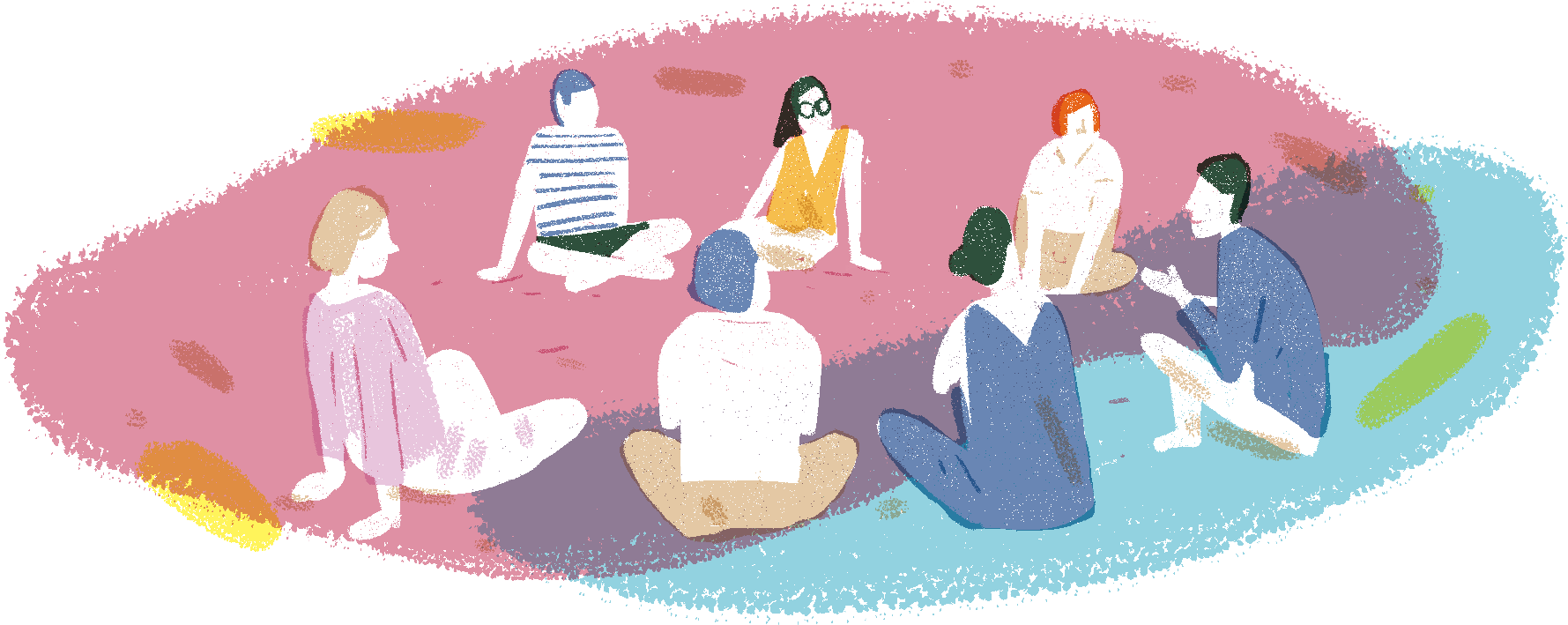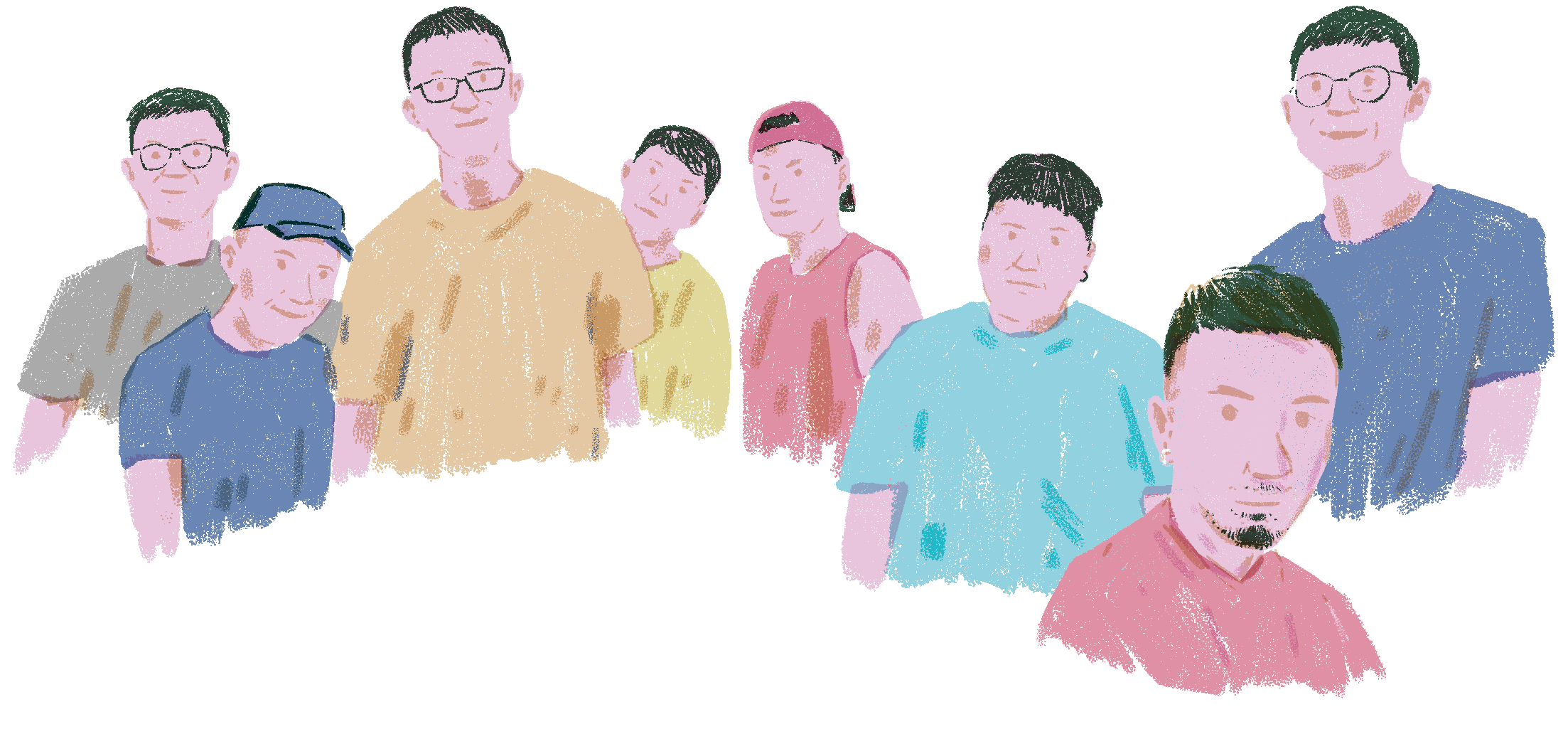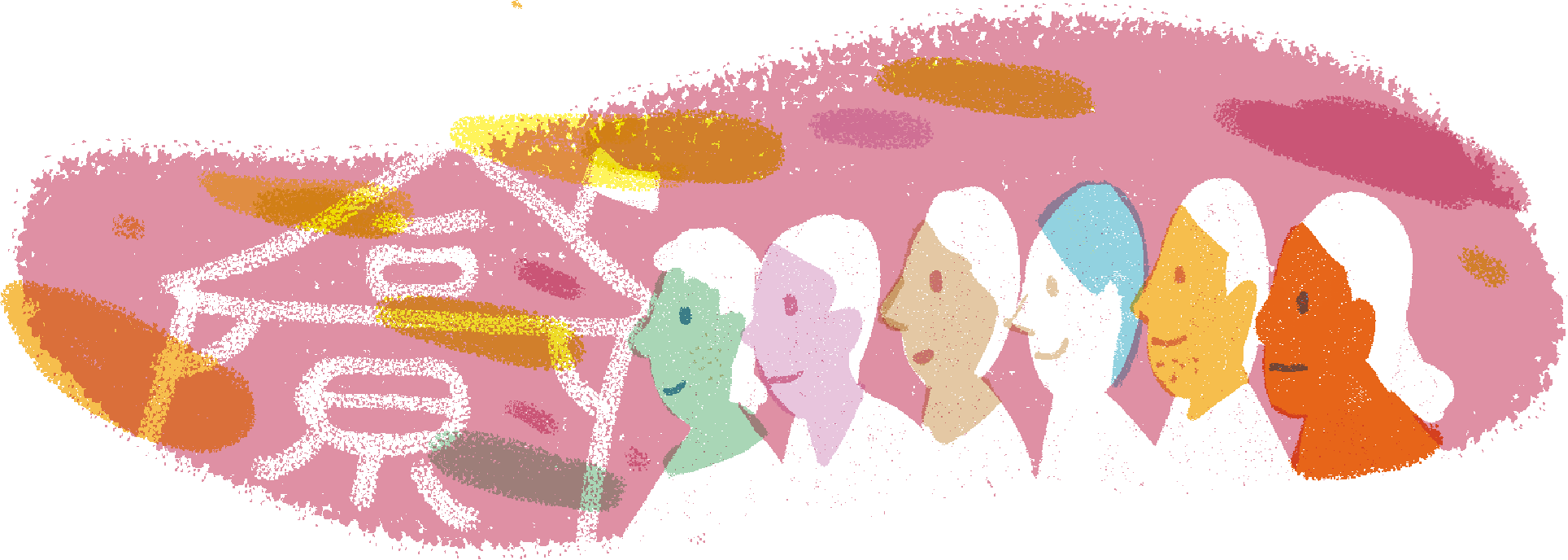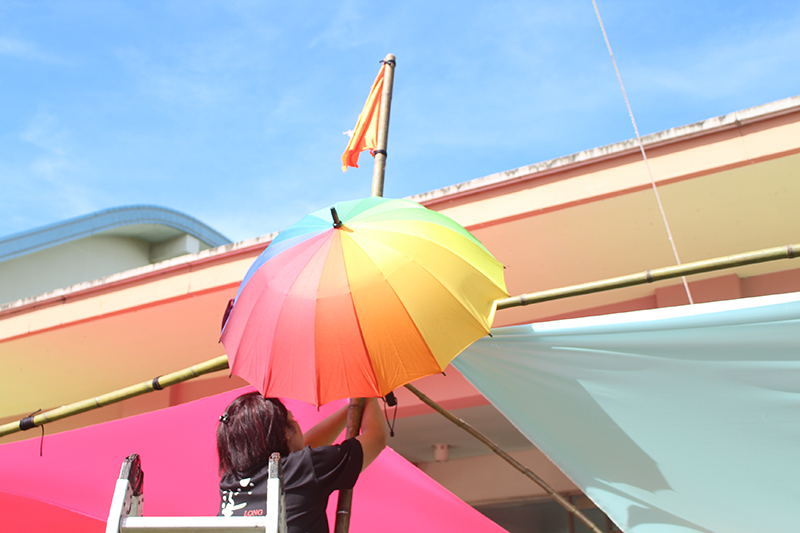From radical pride parade to soft and gentle markets, and further into indigenous villages to listen to the voices of indigenous LGBT, Tong Liao Queer House, a group on gender diversity and equality, is established by young people who love Taitung. The more people willing to take one small step towards recognizing gender diversity is a giant step for Tong Liao Queer House.
Outside the Taitung Art Museum, a market with pride flag waving is bustling with life on the grass. An old lady took part in the Q&A game in one of the stalls, and when a crew member asked her, “nana, do you know what gender diversity is?” “Do you know what legalizing same-sex marriage is?” This old lady exclaimed that she does not support this, but after some explanation from the crew, her anxious face somewhat relaxed. Finally, she said that even though she could not immediately turn around and support them, she now understood more about LGBTIQ.
“A seemingly small change could converge to a greater force,” so says Meng Zi-Yang, convener of the third-year Eastern Taiwan LGBT Pride Market. He and 8 other local friends started in gender diversity movements with the annual LGBT pride, and in 2020, they officially registered as an association under the name Tong Liao Queer House, with Meng Zi-Yang as the first chairman.

From Parade to Market,
Taitung LGBTIQ Walks Under the Sun
The 29 years old Meng Zi-Yang is a Rukai person born and raised in Taitung City, and later relocated to Taichung to attend university. Not being a good singer or fluent in the Rukai language, Meng Zi-Yang fails to live up to the stereotype expectations of Non-indigenous towards an indigenous person and had identity issues while living in the city and suffering from drug addiction. Because of his knowledge in gender issues, he has always paid special attention to LGBT movements. Later on, to rid himself of the temptations of drug addiction, he uprooted his life and moved back to Taitung.
In the glossy and glamorous city, indigenous LGBT can drink at gay bars and partake in LGBT activities without a shred of concern, the vibe is free and friendly. But Taitung presents a completely different scene. Through his boyfriend, Meng Zi-Yang met a group of LGBTIQ that have relocated to Taitung. Every year since 2017, they organize the Eastern Taiwan LGBT Pride parade in Taitung, calling on people to understand and recognize the existence and needs of the LGBTIQ population.
After two years, they realized that the majority of people who walk amongst them in the parade, or give them thumbs up down the streets, are mostly visitors or people who relocated here, approximately 300 to 500 people. But the locally born and bred Taitung LGBT usually just stand in the shadow and watch. Meng Zi-Yang explains that even though Taitung is geographically spacious with a low population, country life is intimately connected and everything you do is talked about amongst friends and family, if you're seen participating in an LGBT gathering, “the news would have traveled all over Taitung by tomorrow.”
In 2019, the Eastern Taiwan LGBT Pride decided to take on a form that people in Taitung are comfortable with. Turning from a proactive and aggressive parade to a soft and friendly market, they are telling the resident of Taitung in a gentle way that there is a group of people living in Taitung, whose sexual identity and gender identity are different from theirs. This event attracted over 1,000 visitors, many LGBT who used to hide in the crowd were willing to stand up and talk to them.
Meng Zi-Yang and his friends realized through this event that the low-profile LGBT population in Taitung needs a support group, so they decided to focus on issues of gender diversity in a more delicate and comprehensive manner. In March this year, Tong Liao Queer House with the mission to advocate for gender diversity was officially registered, the eight core members span a variety of occupations including student, teacher, social worker and service sector, and their gender identity includes gay, lesbian and bisexual. After a few months of operation, they currently have 40 plus members.

Into Indigenous Villages
and Listen to the Hidden Troubles of Indigenous LGBT
Breaking free from the past routine of one major event per year, Tong Liao Queer House set off into towns and organized various seminars. Among which, Meng Zi-Yang was most impressed with the indigenous LGBT seminar co-organized with the Taitung County Social Affairs Bureau.
In order to access more LGBT population in indigenous villages, Tong Liao Queer House asked gender-friendly business owners for reference and invited LGBTIQ from Jinlun Village in Taimali Township and A'tolan Village from Donghe Township to share their life story. Sincere sharing from the moderator always invites enthusiastic interactions from the floor, telling the various predicaments of LGBTIQ in indigenous villages.
“In the village, it's almost impossible to speak for our own gender identity,” says Meng Zi-Yang, even if you meet fellow LGBT in the church fellowship or indigenous village youth association, under the established power structure of the indigenous village and church, gender identity issues is almost a taboo topic. The different traditions of each people also lead to different levels of blame, for example, the Bunun indigenous community emphasizes heroism and masculinity, boys that are more feminine tend to be reprimanded, “act like a man, will you?” Or the Truku people, which is a patrilineal community, if a lesbian with gender identity as male would like to participate in the hunting ritual, they would likely be forbidden to do so.
The president of an youth association in a Pangcah village once encountered a group of lesbians with gender identity as male, and they proposed that they put on male traditional clothes and take part in the youth class system. However, the traditional male Pangcah clothing is topless, not appropriate for the female body, therefore the president rejected the offer. The lesbians were devastated and left, unwilling to participate in traditional affairs again, a regret the president of the youth association never got over. This incident led to a lot of discussion. Can we appropriately adapt traditional clothing in light of the diverse gender diversity, and blur the line between male and female? Or should we not ignore the context of historical development, and preserve the traditional culture more delicately?
Facing the double minority of the loss of traditional culture and gender diversity inequality at the same time, many indigenous young people promoting cultural revitalization in indigenous villages believe that the importance of cultural revitalization overrides the promotion of gender awareness. In order to become core members of indigenous villages, they must conceal their identity as LGBT, some even say that they will not openly come out as LGBT until they have successfully revitalized the traditional culture of their people.
“We also continue to wonder why cultural revitalization and gender equality can’t be advocated at the same time?” Meng Zi-Yang admits, discussions in the indigenous LGBT forum may see an answer right away, but they reflect realistically the numerous problems faced by indigenous LGBT in indigenous villages, and also help Tong Liao Queer House to better graso the needs of indigenous LGBT.

The Heart of Indigenous Villages is
Love
“However, the heart of indigenous villages is ‘love’, and that is never going to change,” says Meng Zi-Yang. The intimately connected bond of indigenous villages may have deprived them of privacy but have also placed down a fundamental social network. With his day job as social worker at Taiwan Lourdes Association, Meng Zi-Yang observed that even if the gender diversity population in Taitung suffer from drug addiction or AIDS, they rarely require the intervention and placement of social welfare organization. Indigenous villages and their families always have a spot for them, a phenomenon rarely seen in the Non-indigenous society.
Also, because of love, the indigenous village is not entirely unwavering when it comes to standing against the gender diversity population. Meng Zi-Yang shares that after a Pangcah gay received approval from his grandmother for his sexual identity, his grandmother turned around and convinced the male elders in the family, “times are different now, you must respect the will of your children.”
With the overall environment becoming increasingly friendly to LGBT, through the internet, children in remote areas can learn or seek company. “LGBT education for children is not just about teaching them to understand LGBT, but also how to get along with them,” Meng Zi-Yang says. Compared to heterosexuals, LGBT have no role models to follow in terms of relationship education, the kids must figure out on their own how to interact with others. When funding allows, Tong Liao Queer House also expands their scope to education, by forming alliance with local parent participating education organizations and seed tree house, they try to promote issues regarding gender diversity on campus.
Sitting on the east coast, Tong Liao Queer House has the firmness of the mountains and the tolerance of the ocean, they will continue to promote the ideas of gender diversity equality so that more pride flags will wave on the beautiful lands of Taitung.





